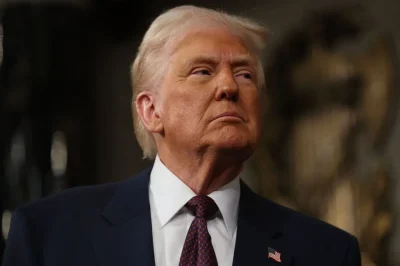U.S. Added to Global Human Rights Watchlist Over Declining Civil Liberties

The move comes amid President Donald Trump’s “assault on democratic norms and global cooperation,” said CIVICUS—a global alliance and network of civil society groups, including Amnesty International, that advocates for greater citizen action in areas where civil liberties are limited—in a press release. The organization also cited the Administration’s cut of more than 90% of its foreign aid contracts and its crackdown on diversity, equity, and inclusion (DEI)—which Trump called “illegal and immoral discrimination programs”—through executive action.
“The Trump Administration seems hellbent on dismantling the system of checks and balances which are the pillars of a democratic society,” said Mandeep Tiwana, Interim Co-Secretary General of CIVICUS, in a press release. “Restrictive Executive Orders, unjustifiable institutional cutbacks, and intimidation tactics through threatening pronouncements by senior officials in the Administration are creating an atmosphere to chill democratic dissent, a cherished American ideal.”
Other countries on the watchlist include the Democratic Republic of Congo, Italy, Pakistan, and Serbia.
CIVICUS outlines the state of civil rights through five categories—open, narrowed, obstructed, repressed, and closed. “Open” is the highest ranking, meaning all people are able to practice liberties such as free speech, and the lowest is “closed.” Per CIVICUS, instances that result in a “decline in open civic space” include “repressive legislation that curtails free speech and dialogue, obstacles to civil society activities and operations and crackdowns on civil disobedience and peaceful demonstrations.”
The U.S. has been classified as “narrowed.” The “narrowed” label is CIVICUS’ assessment that while most people are able to exercise their rights of expression, free speech, and assembly, there are some attempts to violate these rights by the government. For example, CIVICUS cited crackdowns on pro-Palestinian protestors during the Biden Administration, after advocates took to the streets and staged college encampments to voice their discontent with the military assistance and funding the U.S. was sending to Israel. Students participated in demonstrations to demand their schools divest from any companies that profit from or have a relationship with Israel.
“We urge the United States to uphold the rule of law and respect constitutional and international human rights norms,” said Tiwana. “Americans across the political spectrum are appalled by the undemocratic actions of the current Administration.”
The White House did not immediately respond to TIME’s request for comment.
The “narrowed” category also reflects CIVICUS’ assessment that while there is an existing free press, there may be restrictions due to regulation or political pressure on media owners.
This comes at a time when the editorial decisions made by major media organizations and governing bodies have prompted much discussion.
In February, the Federal Communications Commission launched an investigation into NPR and PBS due to concerns that they were “violating federal law by airing commercials,” which both newsroom CEOs deny. The FCC chair also spoke out against public funding for the two news sites.
Jeff Bezos, Amazon CEO and owner of the Washington Post, directed the organization to change the scope of its opinion pages in February, informing the team that they will be writing “in support and defense of two pillars: personal liberties and free markets.”
“We’ll cover other topics too of course, but viewpoints opposing those pillars will be left to be published by others,” Bezos said in his note to the Post team.
That same month, the White House announced its press team will pick the reporters who participate in the press pool—a move the White House press secretary Karoline Leavitt said is about “restoring power back to the American people, who President Trump was elected to serve.” However, many journalism advocates criticized the act. “This move tears at the independence of a free press in the United States. It suggests the government will choose the journalists who cover the president. In a free country, leaders must not be able to choose their own press corps,” the White House Correspondents’ Association said in a statement on Feb. 25.
The White House is also currently ensnared in a lawsuit brought forward by the Associated Press. The news organization has sued three Trump Administration officials—including Leavitt—after it was barred from access to the White House press briefings because it refused to change its editorial style and refer to the Gulf of Mexico as the “Gulf of America,” after Trump renamed it in an Executive Order he signed in January.

